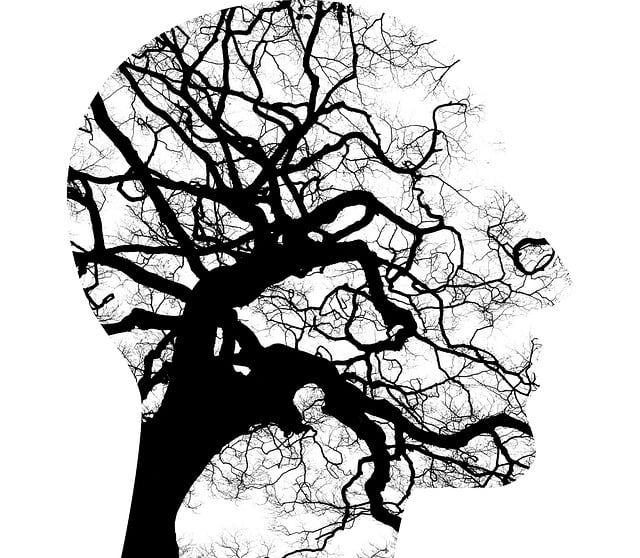Mental health data analysis leverages diverse sources like self-reported surveys, clinical records, wearable tech, and social media to gain multifaceted insights into human experiences and behaviors. Integrating these sources offers a comprehensive view of mental well-being, including stress management and depression prevention. In Superior Relationship Issues Therapy (SRIT), therapists use advanced algorithms and statistical tools to personalize treatment plans based on client data, enhancing communication, building resilience, and reducing stigma. Data-driven SRIT enables proactive risk assessment and informs evidence-based public awareness campaigns that foster mental well-being in communities.
Mental health data analysis is a powerful tool in understanding and improving patient outcomes, especially in addressing Superior Relationship Issues Therapy. This article delves into the critical components of mental health data collection and interpretation, highlighting various analytical techniques that can enhance therapeutic approaches. By exploring diverse sources and utilizing advanced methods, professionals can gain profound insights to tailor treatments effectively, ultimately fostering more successful interventions for individuals facing relationship challenges.
- Understanding Mental Health Data: Collection and Sources
- Data Analysis Techniques for Effective Therapy
- Interpreting Results: Unlocking Insights for Personalized Care
- Enhancing Superior Relationship Issues Therapy with Data-Driven Approaches
Understanding Mental Health Data: Collection and Sources

Understanding Mental Health Data involves recognizing that it’s a multifaceted landscape reflecting human experiences and behaviors. Data collection methods vary widely, from self-reported surveys to clinical records, wearable tech tracking physiological signals, and even social media posts. Each source offers unique insights into individuals’ mental well-being, with some focusing on specific aspects like stress management or depression prevention.
For instance, therapy sessions provide rich qualitative data on clients’ experiences, struggles, and progress. Meanwhile, quantitative data from wearable devices can offer trends in physiological markers linked to emotional intelligence and overall mental health. Integrating these diverse sources allows for a comprehensive view, enabling professionals to better understand the complex interplay of factors contributing to mental health, including superior relationship issues.
Data Analysis Techniques for Effective Therapy

In the realm of mental health care, data analysis has emerged as a powerful tool for therapists and counselors. Advanced techniques allow professionals to gain deeper insights into their clients’ experiences, enabling them to tailor treatment plans more effectively. By employing sophisticated algorithms and statistical methods, therapists can identify patterns and trends within client data, facilitating personalized interventions for superior relationship issues therapy. This approach enhances the overall therapeutic process, ensuring that each individual receives care that is uniquely suited to their needs.
Among the various data analysis techniques, communication strategies play a pivotal role. Analyzing conversation patterns and feedback from sessions helps therapists refine their approaches, fostering open dialogue and strengthening the therapeutic bond. Additionally, resilience-building exercises, grounded in robust data interpretation, empower clients to navigate challenges more effectively. Furthermore, mental illness stigma reduction efforts can be enhanced through data-driven insights, promoting a more inclusive and supportive environment for all individuals seeking therapy.
Interpreting Results: Unlocking Insights for Personalized Care

Interpreting the results of mental health data analysis is a pivotal step towards delivering tailored care and support for individuals grappling with various mental illness, including superior relationship issues therapy. By delving into the insights gained from these analyses, healthcare professionals can gain a deeper understanding of each patient’s unique challenges and strengths. This enables them to develop personalized treatment plans that address specific needs, enhancing the effectiveness of interventions.
Effective interpretation involves identifying patterns, trends, and correlations within the data, which can reveal valuable information about mental health trends in different populations. For instance, analysis might highlight elevated rates of anxiety or depression among specific demographics, guiding the allocation of resources for targeted interventions. Moreover, it plays a crucial role in Mental Illness Stigma Reduction Efforts and Public Awareness Campaigns Development by providing evidence to inform communication strategies that challenge misconceptions and foster understanding.
Enhancing Superior Relationship Issues Therapy with Data-Driven Approaches

In recent years, mental health professionals have increasingly turned to data-driven approaches to enhance Superior Relationship Issues Therapy (SRIT). By leveraging advanced analytics and evidence-based practices, therapists can gain deeper insights into client behaviors, communication patterns, and emotional responses. This enables them to tailor interventions more precisely, improving treatment outcomes for complex relationship issues. Data-driven SRIT not only personalizes therapy but also allows for proactive risk assessment, enabling mental health professionals to identify potential triggers and implement strategies to mitigate risks before they escalate.
Furthermore, integrating data analysis into SRIT can facilitate the development of effective public awareness campaigns. By understanding the prevalent relationship challenges and their underlying causes through data, campaign creators can design targeted initiatives that foster social skills training and promote mental well-being in communities. This holistic approach leverages data as a powerful tool to address Superior Relationship Issues Therapy at both individual and societal levels, ultimately enhancing overall public health.
Mental health data analysis and interpretation are powerful tools that can significantly enhance Superior Relationship Issues Therapy. By understanding diverse data sources, employing advanced analysis techniques, and interpreting results thoughtfully, therapists can tailor treatments to individual needs. This personalized approach not only improves therapeutic outcomes but also fosters deeper connections between therapist and client. Embracing data-driven strategies allows for more effective addressing of complex relationship issues, ultimately enriching the mental health landscape.








